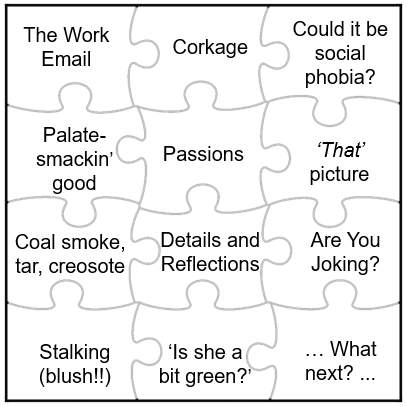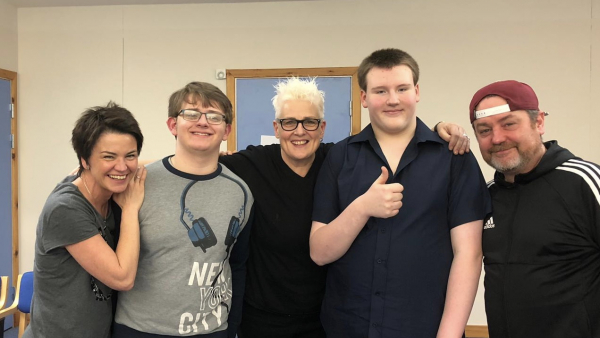Ideal or Ordeal: How do older people fare in residential care homes?
Catherine J Crompton, Post Doctoral Researcher at University of Edinburgh and Cos Michael, Autism Consultant
As in the general population, as autistic adults grow older they may need residential accommodation for support with declining physical and/or mental health. One of the fears expressed by autistic people who live independently is that they may need to enter a residential system which has little understanding of autism. There is a conspicuous lack of longitudinal research studies following autistic adults into middle age and beyond i/ii. Yet around one in a hundred people in the UK are autistic, most of whom are adults iii/iv.
The autistic spectrum covers all intellectual ranges, and autistic people often have other physical and mental health conditionsv. Many older autistic adults without intellectual disabilities will not have a diagnosis. Autistic people with learning disabilities are prioritised for specialist residential care for older people: even then, autism may be a “bolt-on” to the defining learning disability diagnosis. Everyone else needing support must enter generic care homes, where autism training and adjustments may be lacking.
Service providers in the UK have a duty to provide appropriate care for autistic people as they grow older vi. However, we don’t have a clear evidence base for best care practice for older autistic adults, so it can be difficult to design appropriate support vii. As there is currently poor awareness of adult autism among care professionals in elder care services, autistic people may not have their needs met within generic residential care services vi.
Without research into residential care for them, we cannot evidence what happens to older autistic people in residential care. Do they receive autism appropriate support? Are autistic elders asked about their sensory and social preferences and is provision made? Do staff understand their needs? What are the Care Inspectorate or Care Quality Commission criteria for monitoring autism appropriate standards in residential homes for older people?
Over the past six months, we’ve been breaking new ground in this area in a research project funded by Autistica. Firstly, we have brought together a group of twelve experts including older autistic adults, the siblings and children of older autistic adults, staff and managers from autistic residential services (including from the Scottish Autism Founders House service), staff from residential services for the elderly, and clinicians and researchers in autism and ageing. As a group, we’ve had three workshops where we’ve worked together to share our existing knowledge of the needs of older people in residential care, and the needs of autistic people, and used this to try to work out what the main issues may be for older autistic adults in residential care.
Together, we evaluated the tools that the Care Inspectorate use to assess residential homes for elderly people and made a plan for where they need to be adapted to make sure that they’re meeting the needs of autistic people. We also looked at tools to support transitions into residential care from independent living, often used with people with dementia, and worked together to make them useful for care homes to use to support autistic people during their transition. We’re planning to share all this information on our website over the coming months.
You can follow our progress at dart.ed.ac.uk/research/ageing-residential-care.
We also evaluated some of the tools that researchers use to find out about how happy older adults are in their residential care services. While looking at these tools was a good place to start, we found out that a lot of these measures aren’t very useable for autistic people, or they miss important questions – they didn’t include things like what the sensory environment is like, and whether people have space and equipment to pursue their interests and hobbies.
We decided to create a new set of interviews to help us understand what residential care is like for older autistic adults who have previously lived independently but are now living in residential care. We worked with a group of autistic adults and a group of stakeholders to design the interview and it covers areas like the comfort of the sensory environment, independence and choice, hobbies and interests, and advocacy and managing decline in capacity. We’re currently putting the finishing touches to the interviews and we’re planning to publish them later this year so that anyone can use them for future research. We hope that they will be used to understand what older autistic adults’ experiences are like in residential homes, and how we can make them better.
In order to do more research into how to best support older autistic adults, we need to make sure that we have appropriate research tools. We’re very fortunate to have brought together a group of people with huge amounts of expertise to make a research tool that will help us learn more and may improve the experiences of older autistic adults in residential care.
Putting together the experiences of older autistic people in residential care and the expressed support needs of those who may require them in the future, would ideally lead to a ‘next step’ project. This would bring together autism and ageing experts, care home providers and carer agencies. Together, it should be feasible to create a guide to autism appropriate older people’s residential care; providing the information presently lacking, for those whose duty it is to support this population. The availability of such a guide could be an essential tool for commissioning, providing and monitoring appropriate residential care for ageing autistic people.
i Piven, J., Rabins, P., & Autism in Older Adults Working Group.(2011). Autism spectrum disorders in older adults: toward defining a research agenda. Journal of the American Geriatrics Society, 59 (11), 2151-2155.
ii Happé, F., & Charlton, R. A. (2012). Aging in autism spectrum disorders: A mini-review. Gerontology, 58 (1), 70-78.
iii Baird, G., Simonoff, E., Pickles, A., Chandler, S., Loucas, T.,Meldrum, D., & Charman, T. (2006). Prevalence of disorders of the autism spectrum in a population cohort of children in South Thames: the Special Needs and Autism Project (SNAP). The Lancet, 368 (9531), 210-215.
iv Brugha, T., Cooper, S. A., McManus, S., Purdon, S., Smith, J., Scott, F. J., & Tyrer, F. (2012). Estimating the Prevalence of Autism Spectrum Conditions in Adults: Extending the 2007 Adult Psychiatric.
v Perkins, E. A., & Berkman, K. A. (2012). Into the unknown: Aging with autism spectrum disorders. American Journal on Intellectual and Developmental Disabilities, 117 (6), 478-496.
vi Michael, C. (2016). Why we need research about autism and ageing. Autism, 20, 515–516.
vii Povey, C. & Michael, C. Listen to the experts: Autistic adults tell us what they need. Autism Spectrum Disorder in Mid and Later Life (JKP, 2016).





